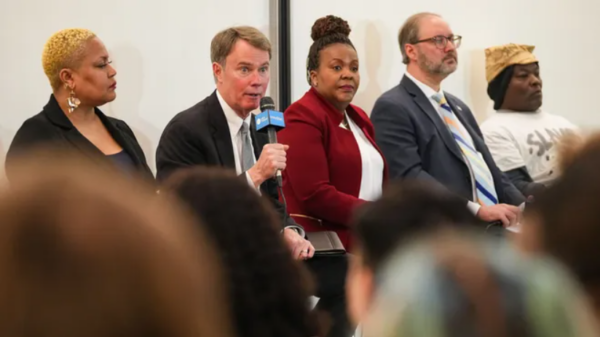In front of a predominantly Black audience on April 20 at Christ Temple Apostolic Faith Assembly in Fall Creek, four Indianapolis mayoral candidates were asked, “What is your relationship with the Black community?”
In the first mayoral election since the nationwide racial justice protests of 2020, which included demonstrations in Indianapolis, race has played a prominent role.
The eight remaining candidates, four of whom are Black and who represent the most diverse pool the city has seen in the 21st century, were questioned about how they would confront racial inequality and the Black community.

Indianapolis, a city where 29% of the population is Black, has only ever had white males serve as mayors. Never before has a person of color or a woman been elected as the city’s mayor. Mayor Joe Hogsett shook up the political landscape when he announced he would run for a third term to conclude what he considers unfinished business as a result of the COVID-19 pandemic.
In Indianapolis, the contest for mayor has racial justice and equity as central topics.
White Hogsett boasts that his administration is the most diverse in city history. State Representative Robin Shackleford, a Black Democrat from Indianapolis, has made diversity, equity, and inclusion central to her platform.
One of the Republican frontrunners, white Jefferson Shreve, has been under pressure to defend his diverse hiring record at the company he sold for $590 million last year, Storage Express, and his relationship with the Black community.
The other leading candidate, the African-American Abdul-Hakim Shabazz, has had to defend his own views and history of controversial remarks on racial issues.
And a third Black Republican candidate, the Rev. James Jackson, has discussed the difficulty of being a Black Republican while advocating for greater diversity in the GOP.
Bob Kern, Larry Vaughn, and John Couch, three additional candidates, raised little to no funds for their campaigns.

